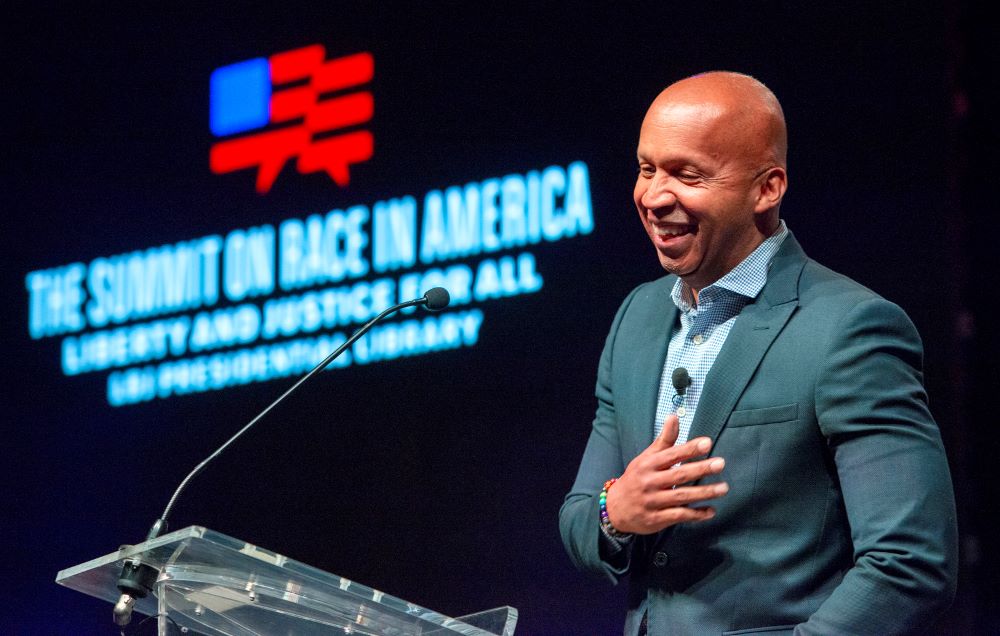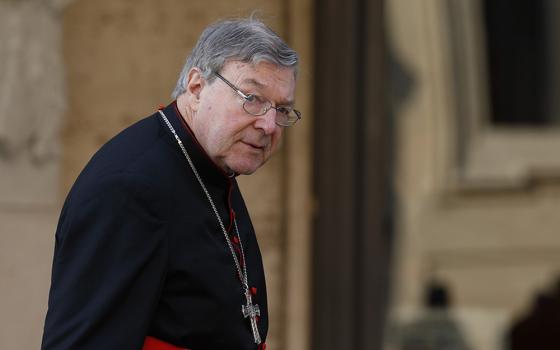
Public interest lawyer Bryan Stevenson, founder and executive director of the Equal Justice Initiative in Montgomery, Alabama, speaks about his mission at The Summit on Race in America at the LBJ Presidential Library on April 9, 2019. (Wikimedia/Jay Godwin)
"The politics of fear and anger are reigning. We need to become hopeful, courageous, faithful truth-tellers. Truth is the antidote to the abuse of power. The truth will set us free."
That's what legendary lawyer and activist Bryan Stevenson told John Dear on this week's episode of "The Nonviolent Jesus Podcast."
Stevenson is the founder and executive director of Equal Justice Initiative, a professor of law at New York University School of Law and author of the bestselling book Just Mercy, which was made into a powerful movie of the same name starring Michael B. Jordan and Jamie Foxx.
Stevenson graduated from Harvard University and moved to Montgomery, Alabama, where he started his nonprofit to serve those on death row, the poor, the wrongly condemned and those trapped in the furthest reaches of our criminal injustice system.
"Going to death row completely changed me," he said. That's where he met Walter McMillian, an innocent man sentenced to die for a notorious murder he did not commit. After a heroic struggle, he got McMillian released. "If I am successful at all, it is because I got close to a condemned man and heard his song," Stevenson said.
Stevenson has won relief for dozens of condemned prisoners, argued five times before the Supreme Court and won many awards, including the MacArthur Foundation "Genius" grant.
A few years ago, he raised millions of dollars and built two museums in Montgomery — The National Museum of Peace and Justice, the nation's first comprehensive memorial dedicated to the legacy of Black Americans who were enslaved and terrorized by lynching, and the Legacy Museum, which displays the history of slavery, racial lynchings and segregation. South African Archbishop Desmond Tutu called Stevenson "America's young Nelson Mandela," and deservedly so.
Advertisement
Dear talks to Stevenson about his take on the current national crisis under President Donald Trump, the rise of fascism, racism and systemic injustice, as well as his understanding of nonviolence, what he has learned from the unjustly incarcerated, and where he finds hope.
"Proximity has taught me some basic and humbling truths, including this vital lesson: Each of us is more than the worst thing we've ever done," Stevenson said. "My work with the poor and the incarcerated has persuaded me that the opposite of poverty is not wealth; the opposite of poverty is justice.
"Finally, I've come to believe that the true measure of our commitment to justice, the character of our society, our commitment to the rule of law, fairness and equality cannot be measured by how we treat the rich, the powerful, the privileged and the respected among us. The true measure of our character is how we treat the poor, the disfavored, the accused, the incarcerated and the condemned."






